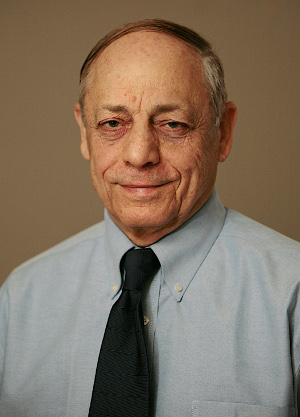
Sunshine Week 2009 takes place from March 15 through 21. The annual event is about the public's right to know what its government is doing, and why. Sunshine Week seeks to enlighten and empower people to play an active role in their government at all levels, and to give them access to information that makes their lives better and their communities stronger. Lake County News will present guest commentaries and news stories about open government as part of this year's Sunshine Week.
As we celebrate Sunshine Week this year, advocates of open government have reason to cheer. In the first week of his administration, President Barack Obama used an executive order to reverse the Bush administration’s direction to federal agencies — in the notorious Ashcroft memorandum — to resist most requests for government information and documents, requests based on the Freedom of Information Act (FOIA).
President Obama's executive order also required federal agencies to furnish definite plans to implement a more open and transparent government within 120 days. This is progress, indeed. But before we run up the flag and declare victory, a bit of history and a warning, is in order.
FOIA was authored and pushed to enactment by John E. Moss a little-known Congressman from Sacramento, who came to Washington in 1952. Moss fought for more than a decade with the Eisenhower and successor administrations to open the growing volume of government records to the public. He was originally involved in the issue when, while he was a freshman congressman, the civil service commission fired some 2,800 federal employees on grounds that they were "security risks." Moss, who had been burned himself by charges of being soft on communism in his first campaign for office in the McCarthy era, believed that the employees, who were being denied access to their own records, weren't getting a fair chance to defend themselves. And Moss doubted most were security risks at all.
The Departments of Justice and Defense have long offered many and varied reasons why people should not see what was in government files. It is too soon to know how they will respond to President Obama’s executive order. But under President Eisenhower, even as a member of Congress, Moss made little headway on the security matter and on his other efforts to open government. So he drafted and introduced one bill after another to change things. They went nowhere.
When John F. Kennedy defeated Richard M. Nixon in 1960, Moss, and his allies in the press, thought that FOIA’s time had come.
They were wrong. Although Kennedy was personally sympathetic to the idea of open government and promised Moss in a letter that he would only claim executive privilege personally and not through subordinates, the federal agencies proved to be a much tougher nut to crack, especially after Kennedy was assassinated. They significantly influenced Kennedy’s successor, Lyndon B. Johnson by recommending a veto of the FOIA bill that Moss was driving through the Congress.
At one point, Moss was pulled out of a hearing on FOIA by House Speaker John McCormack and Majority Leader Carl Albert. They had just come from a meeting with LBJ at the White House. The president wanted to know the status of "this terrible legislation." He asked, "What is Moss trying to do to me?" He suggested that the bill be shelved.
But Moss did not back down. The bill was eventually passed and sent to LBJ who was, at that moment, vacationing at his ranch in Texas. According to Bill Moyers, who was there at the time, LBJ was on the verge of vetoing the bill. What he feared — and what most presidents always fear — is that embarrassing or incorrect information would be released to the public and prove to be politically damaging. There is, as Moss found, an inherent tension between government and freedom of information.
With the clock ticking on FOIA's fate in July1966, it looked like the bill would die. LBJ was mostly concerned that national security and executive privilege might be compromised. But Moss and the press combined to energize a wave of editorials, telegrams and letters in support of the bill.
Moyers finally convinced LBJ to sign, what LBJ called, "the damn thing," even as he said "it will probably screw my administration."
History’s message is clear. Advocates of more open government and maximum freedom of the press must continuously fight against claims of national security and executive privilege to ensure they are not extended beyond reasonable boundaries or used as a shield against the publication of information that might prove embarrassing. Every week is, in a real sense, Sunshine Week.
Moss understood the need for vigilance. Before he died in 1997, he warned that openness in government was a concept that required constant renewal, no matter who is president and how sympathetic he or she may seem to the principle. Sometimes, he said, "You can have more disagreements with your family and friends than with strangers."
Michael R. Lemov is a Washington attorney and former counsel to Congressman John E. Moss. This article is based on his forthcoming book, “John Moss and the Consumer Decade.” He may be reached at This email address is being protected from spambots. You need JavaScript enabled to view it..
{mos_sb_discuss:4}


 How to resolve AdBlock issue?
How to resolve AdBlock issue? 





